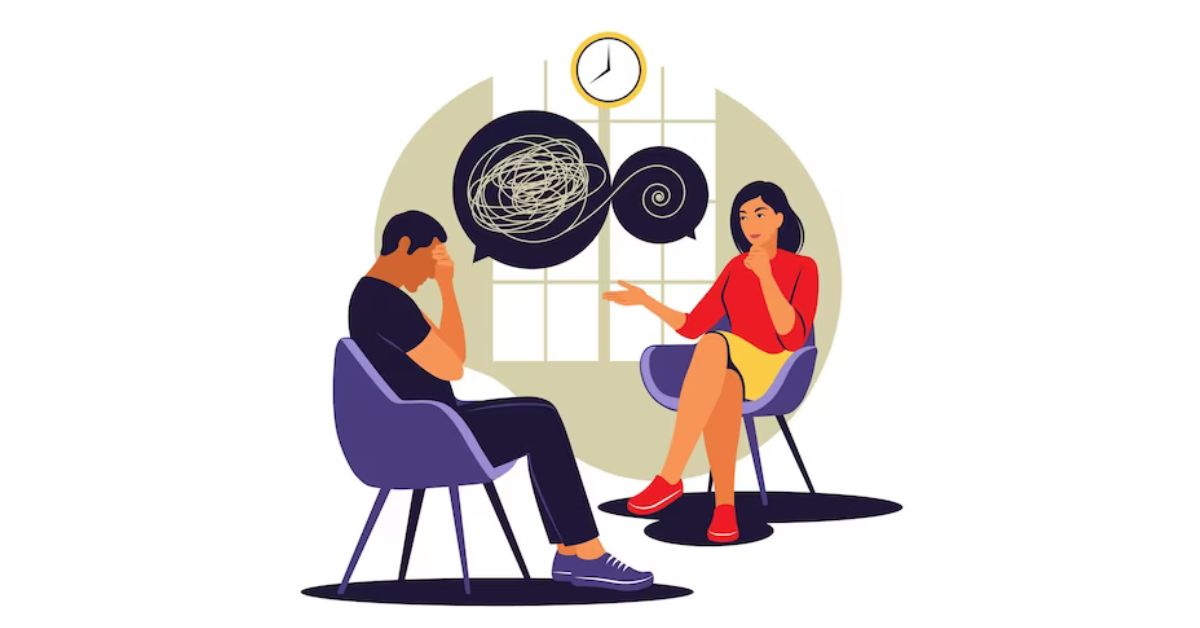Choosing the right therapist is a vital step in the journey toward mental wellness. The decision to seek therapy marks a courageous commitment to self-care and personal growth. Finding a therapist who aligns with your needs, values, and comfort is pivotal for effective support and healing. In a world where various therapeutic approaches and practitioners exist, navigating this landscape can be both empowering and overwhelming. Talking therapy helps assess rapport, communication, and comfort, aiding in selecting a therapist conducive to meaningful interaction. Whether seeking help for specific mental health issues, life transitions, or personal development, the process of selecting a therapist involves careful consideration, research, and, ultimately, a connection based on trust and understanding.
Consider Your Goals Ahead of Time:
Before seeking a therapist, clarify your objectives. Consider what you aim to achieve from therapy, whether it’s managing anxiety, improving relationships, or dealing with specific issues. Define these goals in advance to guide your search for the right therapist. Clear goals help in communicating your needs effectively and ensure you and your therapist are aligned in working towards specific outcomes, enhancing the effectiveness of the therapy process.
Research Therapists:
When researching therapists, start by exploring reputable online directories like Psychology Today or Therapy Den. Utilise professional organisations’ websites or seek referrals from your doctor, friends, or family. Look for licensed professionals with expertise in your specific concerns. Check their qualifications, experience, and specialisation. Consider reading reviews and testimonials from previous clients to gain insights into their practice. Contact multiple therapists to discuss your needs and evaluate their responses. Assess their approach, compatibility, and style to determine if they align with your preferences. Also, ensure the logistical aspects, such as location, fees, and schedules, are convenient for you.
Check Qualifications and Specializations:
When choosing a therapist for mental health, it’s essential to check their specialisations. Look for therapists who have specific expertise in the areas that align with your needs. Whether you’re dealing with depression, anxiety, trauma, relationship issues, substance abuse, or a particular condition, finding a therapist with a relevant specialisation is crucial. Specialised therapists are often more equipped to understand the nuances of your situation and provide tailored interventions. Their in-depth knowledge and experience can make the therapeutic process more effective and efficient, helping you address your specific concerns and work towards your mental health goals with confidence.
Explore Local Resources:
Explore local resources such as community health centres, university counselling centres, or local mental health clinics. These centres often provide a range of mental health services and can offer referrals to qualified therapists or counsellors in your area. Additionally, they might offer reduced-cost or sliding-scale fee options for those with financial constraints. Local support groups or community organisations might also have recommendations or resources available. Engaging with these local resources can lead you to suitable mental health professionals who cater to various needs and backgrounds within your community.
Reliable Online Database:
Psychology Today’s online database is a reliable resource for finding therapists. Featuring an extensive directory of mental health professionals, it allows users to search based on various criteria such as location, specialities, insurance, and therapeutic approaches. This database offers detailed profiles of therapists, including their qualifications, areas of expertise, and contact information. The platform provides a user-friendly interface and verified reviews, aiding individuals in making informed decisions about choosing the right therapist. With its comprehensive information and diverse options, Psychology Today’s database serves as a dependable resource for those seeking mental health support.
Try Online Therapy:
Online therapy offers convenience and accessibility, allowing you to access mental health support from the comfort of your home. Through secure platforms, you can connect with licensed therapists, receive counselling, and engage in various therapeutic techniques tailored to your needs. It’s flexible, often more affordable, and removes barriers like location or mobility issues. However, internet access and privacy are important considerations. Platforms like BetterHelp, Talkspace, or Amwell offer a range of professionals and therapy modalities. While it’s a convenient option, ensuring the therapist’s credentials, encryption for confidentiality, and a good fit for your needs remain vital for successful online therapy.
Ask Questions About Your Issues:
When interviewing potential therapists, don’t shy away from asking about the aspects crucial to your therapy. Inquire about their therapeutic approach, experience with your specific concerns, and the techniques they might employ. Discuss logistics like session duration, frequency, and fees. Inquire about their views on medication, if relevant. Confirm their confidentiality policies and the steps they take in emergencies. Moreover, ask about the therapist’s expectations regarding your involvement and commitment to the therapeutic process. These questions help clarify if the therapist’s style and methods align with your needs, ensuring a more fruitful therapeutic journey.
Selecting the right therapist for mental health is a vital decision that requires thoughtful consideration. By identifying your specific needs, researching qualified professionals, assessing their approach and compatibility, and considering logistical factors, you can make an informed choice. Trusting your instincts and the therapeutic alliance formed during initial sessions is pivotal. Remember, finding the ideal therapist might involve some trial and error, but prioritising your comfort, needs, and a strong therapeutic relationship is key to effective mental health support and growth.
Also, read: 7 Ways to Add a Touch of Fashion to Your Healthcare Scrubs
